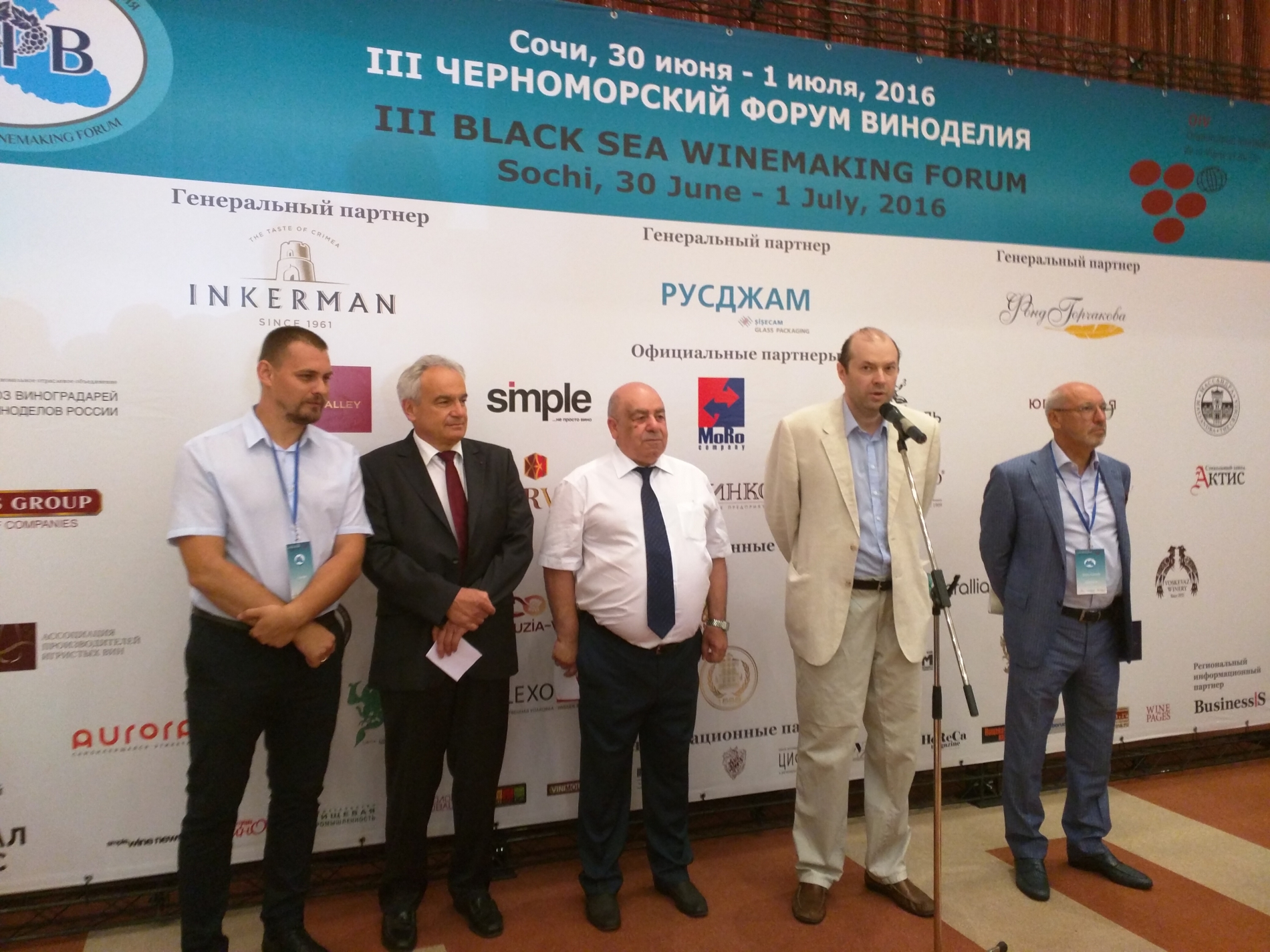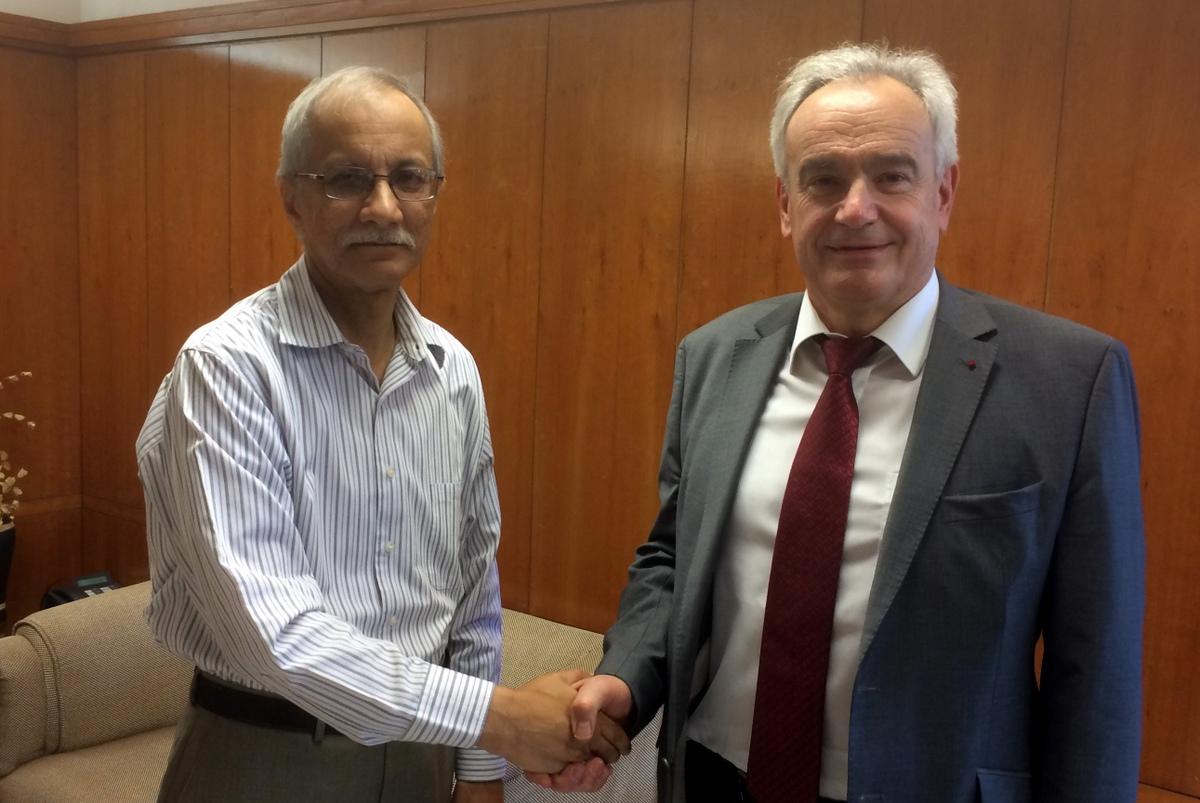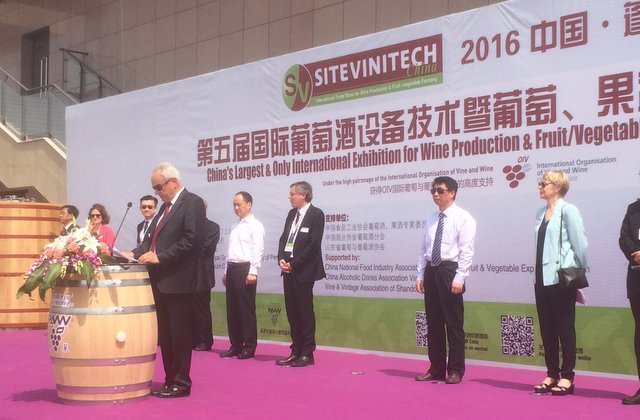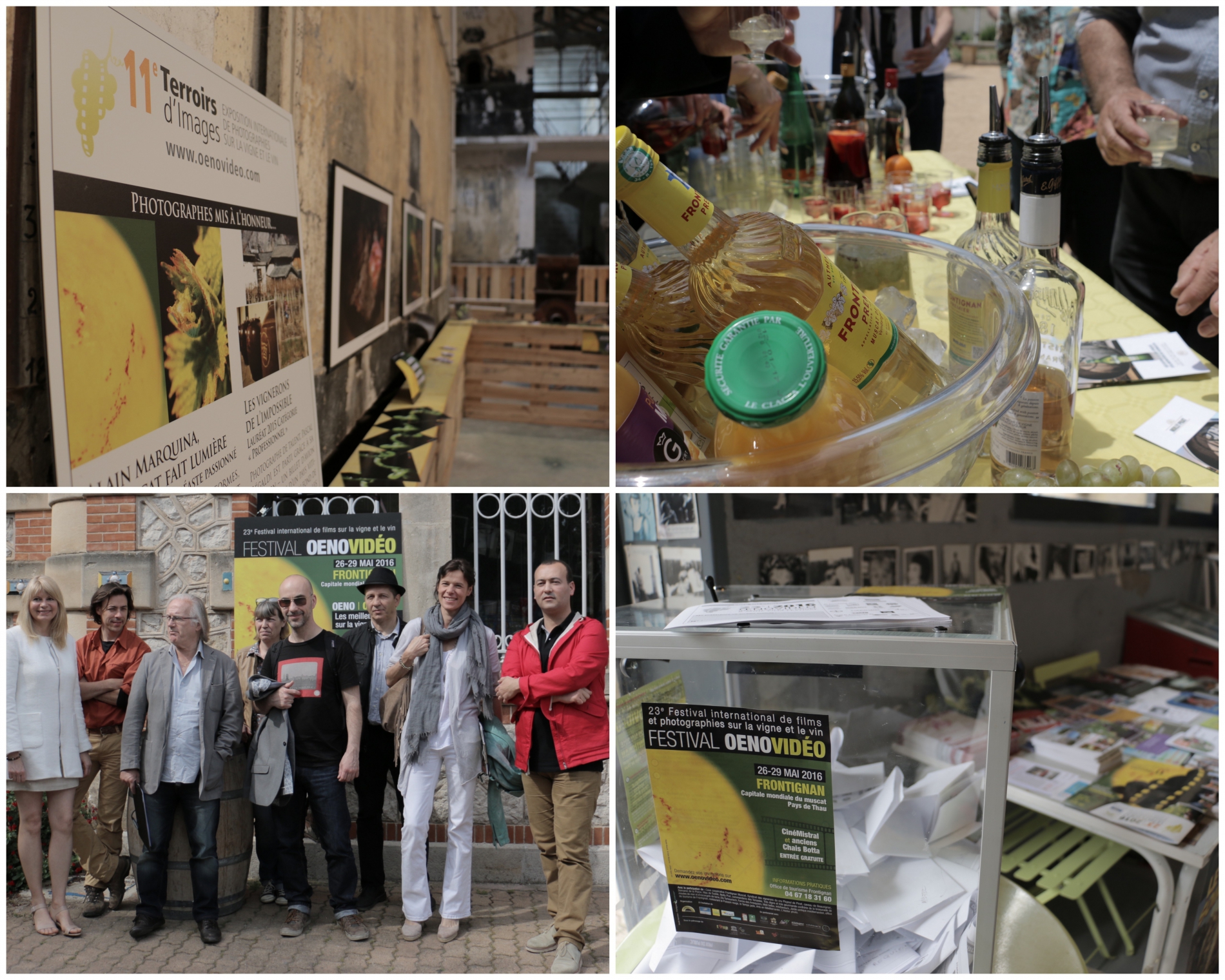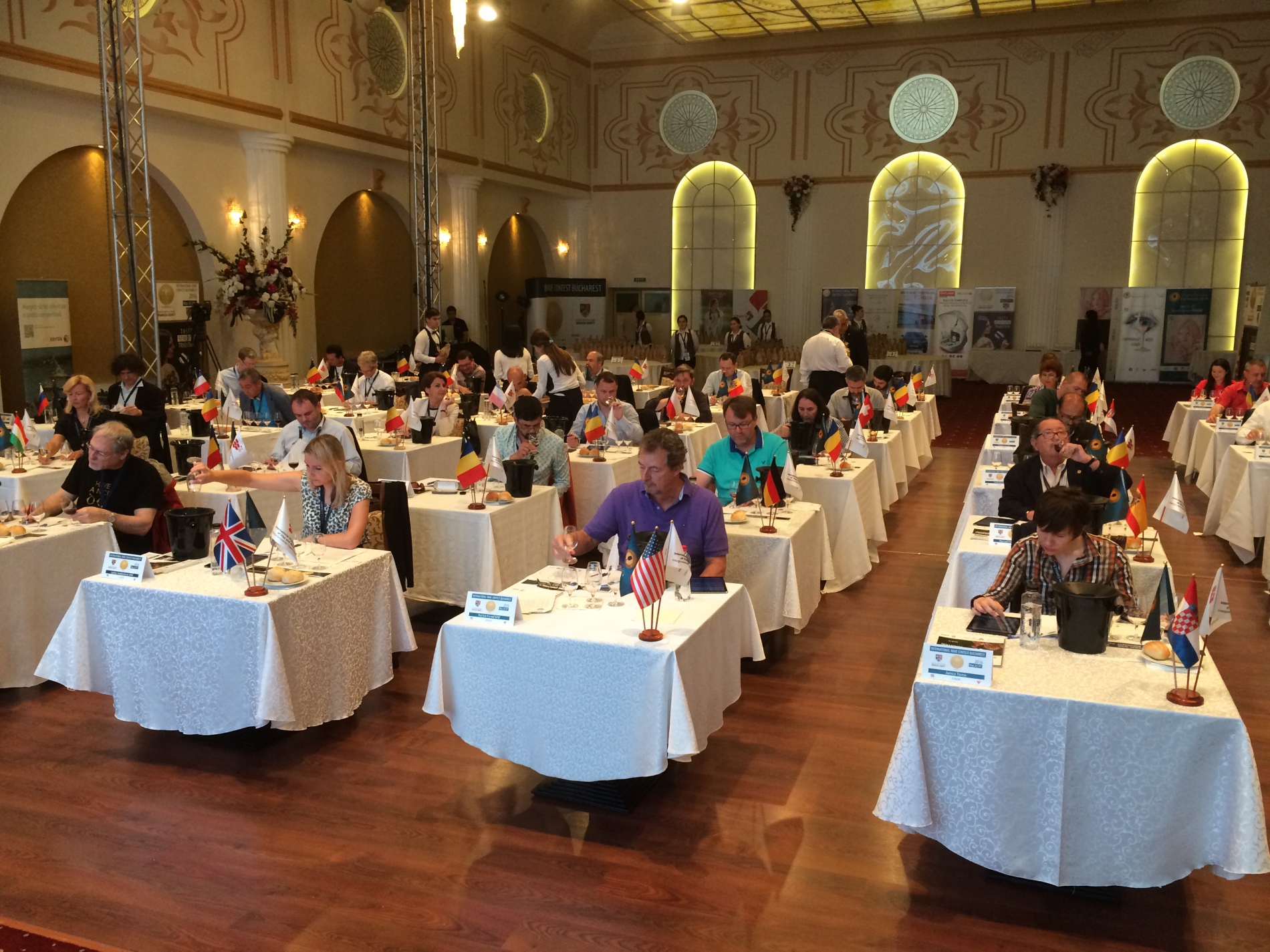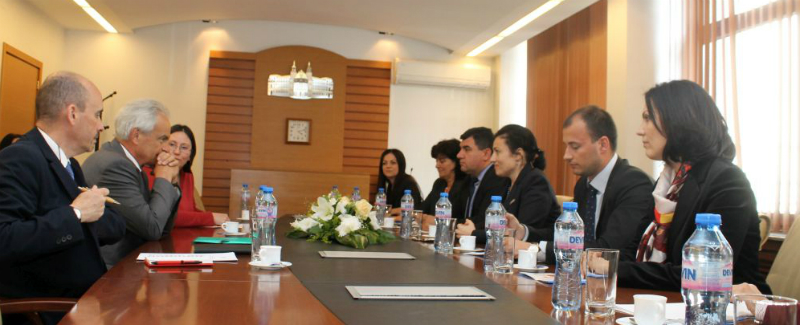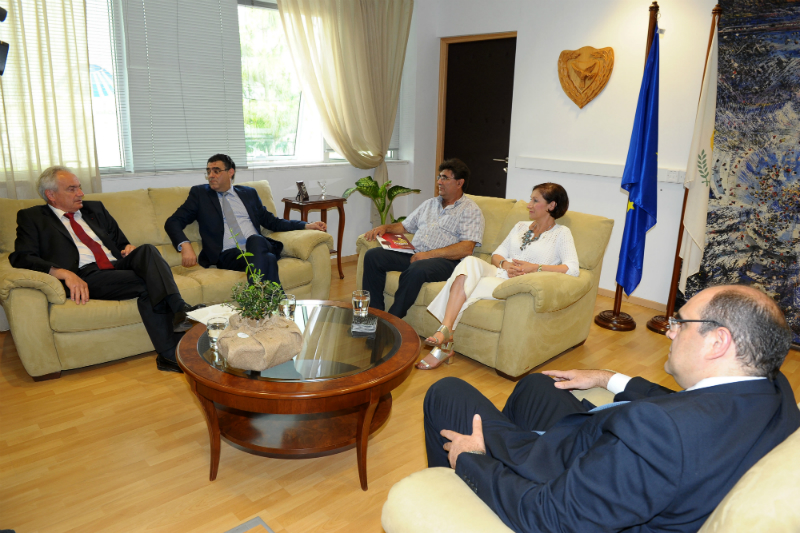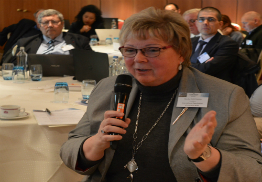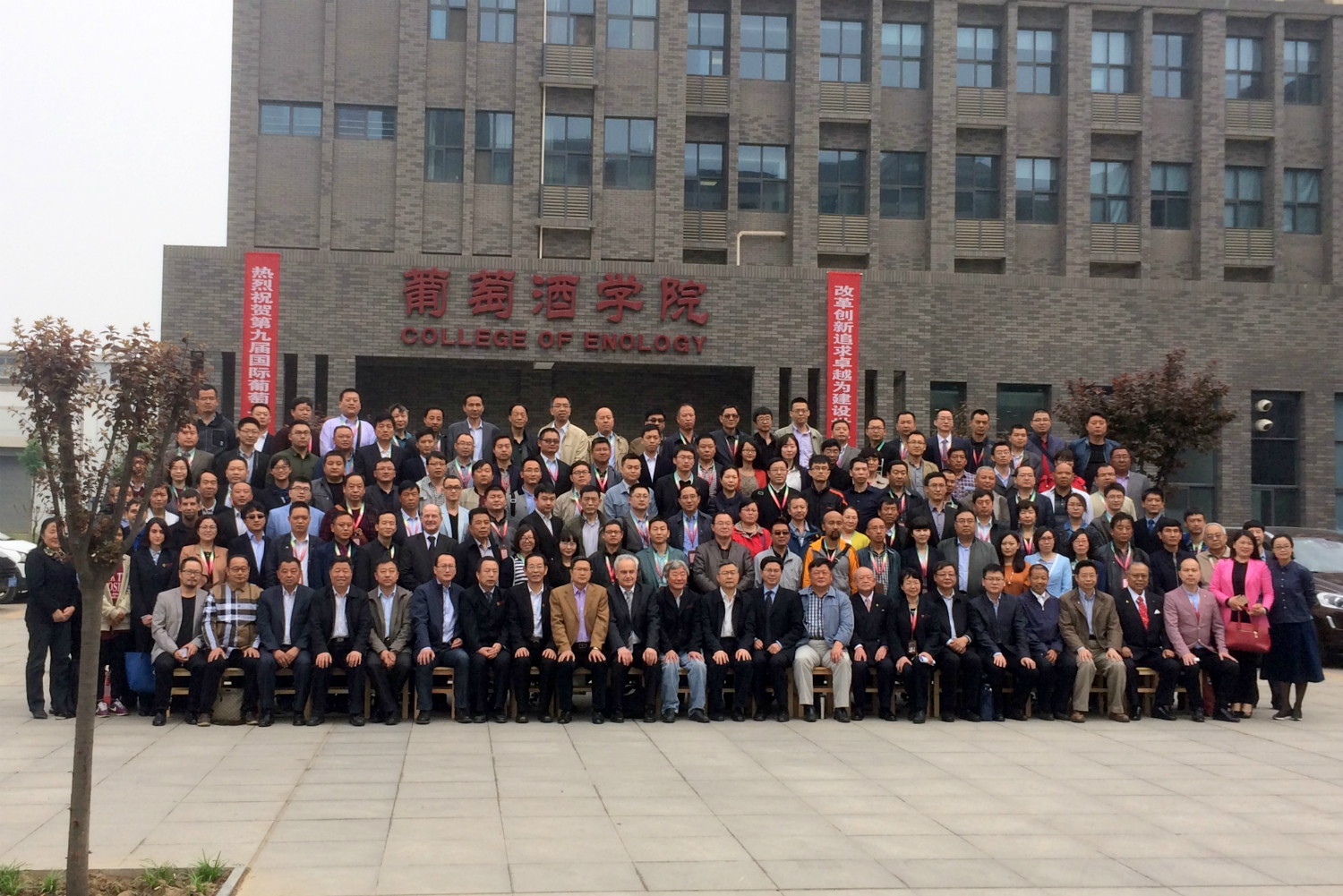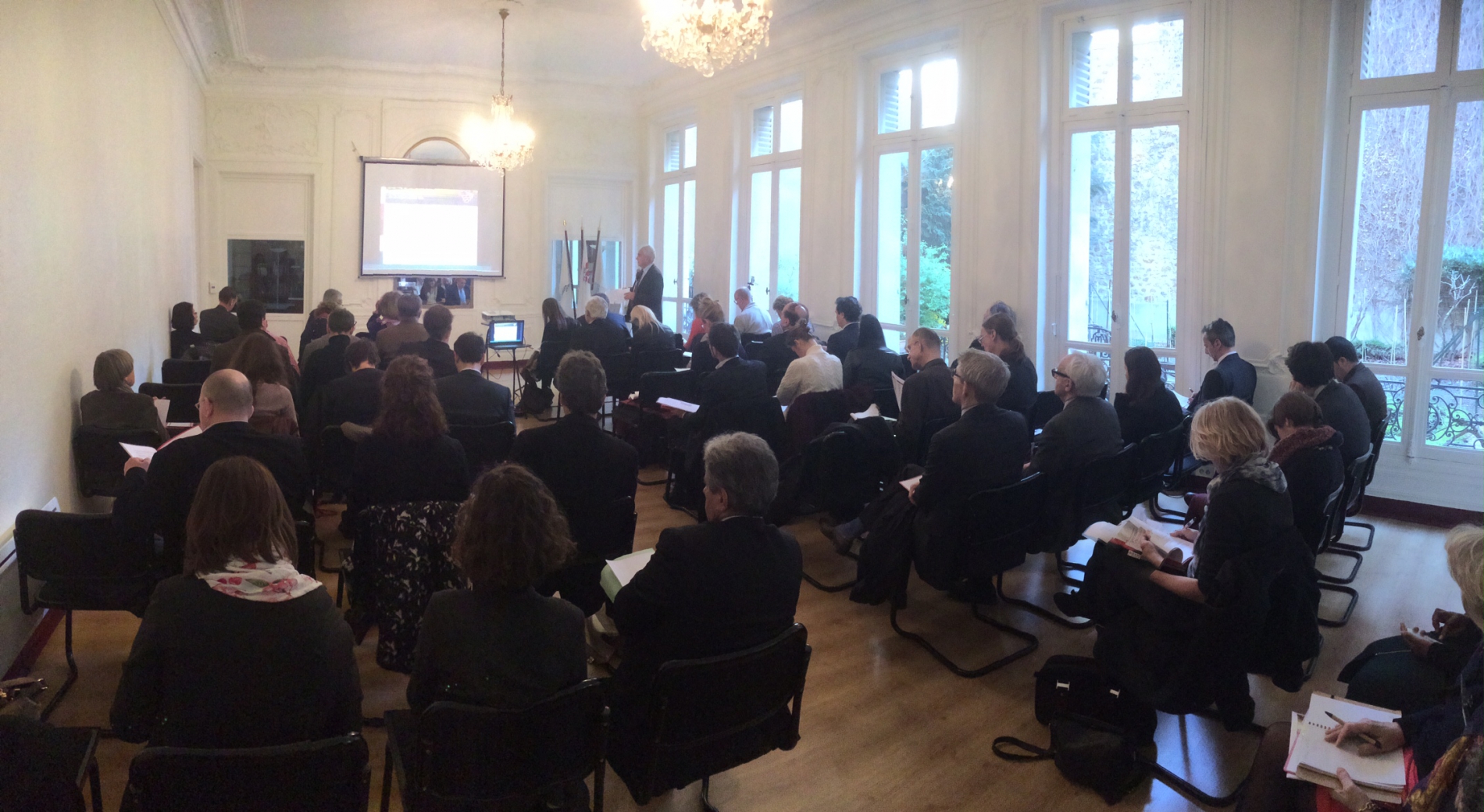01 Jul 2016
Placed under the patronage of the OIV, this event was put on within the framework of the Organization of the Black Sea Economic Cooperation (BSEC), of which Russia assumed the chairmanship in 2016.It gathered together around 150 actors in the vitivinicultural sector and wine producers – with distributors, oenologists and sommeliers from 10 or so countries.During a conference organised on the theme of prospects for cooperation (both technical and economic) in the vitivinicultural sector all around the Black Sea region, the Director General of the OIV, Jean-Marie Aurand, gave a presentation of the major trends in vitiviniculture on a global scale – with a particular focus on the main developments in consumption and its recent evolutions.The third Black Sea Winemaking ForumA presentation of wines organised as part of the forum brought together around 60 companies.
22 Jun 2016
This culminates an important process in developing food standards for food additives that began about three years ago.FSSAI has also finalized a list of food additives with respect to alcoholic beverages in alignment with International Organization for Vine and Wine (OIV) Standards. With this FSSAI has achieved a major landmark in setting of the standards for various foods in the country.Jean-Marie Aurand, the OIV Director General, who met last March in Delhi the chairman of FSSAI, Mr Ashish Bahuguna expressed his satisfaction to see that India, who joined the OIV in 2011, will be in line with the international standards established by the OIV. He also mentioned that he is convinced that the fruitful exchanges he had with different national Authorities and professional in India allowed this alignment and will allow a better understanding and involvement of India in OIV activities.
02 Jun 2016
Over 100 exhibitors from 10 different countries presented more than 200 brands of vitivinicultural materials and equipment over 3 days in the heart of China's top wine region.The Director General of the OIV participated in the opening in the presence of local authorities and Ms Valérie Lobry, the Director General of COMEXPOSIUM.Sitevinitech China 2016During his speech, he highlighted the role of this exhibition and the technical conferences held on this occasion in the dissemination of information on technological innovation and developments in the vitivinicultural sector. Jean-Marie Aurand also recalled the historic relationship between the OIV and the Yantai-Penglai Region.The Yantai Region constitutes the cradle of Chinese vitivinicultural production. It was indeed in Yantai that the company Changyu founded modern Chinese viticulture in 1892. The company is now one of the two major leaders in the sector, alongside COFCO.With nearly 3.5 million hl of wine per year, the Yantai Region accounts for more than a third of Chinese production. It comprises 156 vitivinicultural companies, 35 of which are among the biggest in China.In 1987, Yantai was recognised as an "International City of Vine and Wine" by the OIV and the municipality has observer status within the Organisation.During a meeting with the Director of the Yantai Wine Bureau, Mr Jia Yu Zhang, the Director General of the OIV expressed his desire for the region's experts to be able to participate in the work of the OIV. He also stressed the importance of closer cooperation between the People's Republic of China and the OIV in future.In addition, Jean-Marie Aurand took part in the 21st Gourmand Awards on 28 May in Yantai, at the invitation of its President Edouard Cointreau. This event aims to promote gastronomy and wine through various works and televised programmes.The 21st Gourmand AwardsFinally, the visit to several domains confirmed the dynamism of this region, which continues to plant vineyards and build wineries.
01 Jun 2016
Out of 28 officially selected films and a total of 15 hours of screening, the 2016 Oenovideo Grand Prix was awarded to the Canadian film "Au pif" from Pimiento inc., produced by Bachir Bensaddek y Orlando Arriagada. This is a documentary on the world of sommellerie seen through the eyes of the Québécoise sommelier Véronique Rivest. President of the Grand Jury, Philippe Muyl, during the announcement of the Oenovideo Grand PrixIn total, including the selections of the Grand Jury, the public and the partner judges, 14 films received awards. Consult the 2016 list of award winners. Under the theme "Le printemps des vignes : le retour de la vie !" ("Springtime for vines: coming back to life!"), the 11th Terroir d'Images exhibition was held at the same time. Out of over 1500 works by amateur photographers and professionals from 12 competing countries, 110 photographs were officially selected.The official award ceremony will take place on Wednesday 14 September 2016 at the Palais du Luxembourg in Paris. At this time, the best photographers of the Terroirs d'images exhibition will also be recognised and presented with awards.A première in HéraultNestled between sea and scrubland at the edge of the Thau lake, Frontignan was the first town in Hérault to host Oenovideo, an itinerant festival since its beginnings. It was also an opportunity to celebrate the 80th anniversary of the Muscat de Frontignan appellation. Between each screening, attendees were able to awaken their senses in the land of Muscat and engage in discussions with regional wine producers and film directors.
31 May 2016
This initiative, respected by many international judges, has allowed for the discovery of an important wine region and the contribution to the promotion of the image and culture of Romanian wines.Jean-Claude Ruf, the official OIV delegate at this competition that was placed under the patronage of the Organisation, praised the rapid development of the event, which brought together almost 1500 wines this year – 30% more than the last one. A total of 36 countries were represented. This contest thus sees its success confirmed year after year.
19 May 2016
Ms Taneva affirmed the strong support of the Bulgarian government and its Ministry in the organisation of the Congress. The event will showcase the revival of Bulgarian vitiviniculture, which has seen a significant transformation in recent years.The OIV Director General underlined the unanimous agreement of the OIV Member States to taking Bulgaria up on its invitation, 50 years after the last OIV General Assembly held in Sofia in 1966. Together with Ms Vesselina Evdokimova, Attaché for Agriculture and Food at the Embassy of Bulgaria in Paris, and with Mr Krasimir Koev, Director of the Executive Agency for Vine and Wine, Jean-Marie Aurand participated in working meetings to initiate the first logistical steps and visit the locations that will host the experts and delegates who will be taking part in the 40th OIV Congress. The Director General praised the strong direct involvement of the Agency and its collaborators, and expressed his conviction that all of the conditions necessary to make this annual summit of the global vitivinicultural sector a success would be met.
17 May 2016
Jean-Marie Aurand took part in the ninth Cyprus Wine Competition as President of the tasting jury. This competition, placed under the patronage of the OIV, was very well organised and brought together 132 greatly diverse, good-quality wines.During a meeting with Minister for Agriculture Mr Nicolaos Kouyalis, the Director General emphasised the good collaboration that already exists with the teams of the Department of Agriculture and more specifically the Cypriot Viticulture and Oenology Section. He also expressed the desire for even stronger involvement of the experts in the work of the Organisation. The Minister responded favourably to this proposal, insisting on the interest of an active presence at the OIV for Cyprus.A decision was made to hold a presentation of Cypriot wines at the OIV headquarters in the near future.The cultivation of vines in Cyprus – which dates back over 6000 years – is part of the country's history.The country enjoys a number of advantages that will enable it to develop its vitivinicultural sector and add value to its wines, including promising local varieties (Xynisteri, Maratheftiko, etc.), a growing domestic market driven by tourism and an absence of Phylloxera.Wine production is currently fluctuating at around 10,000 hl per year for an area under vines of approximately 7000 ha.
28 Apr 2016
©FIVSEnvironmental sustainability, social responsibility, trade facilitation and consumer matters were the topics covered in the three-day conference, with attendance from six of the seven continents and all segments of the alcohol beverage industry.The FIVS Spring Conference was held at the Royal Windsor Hotel and policy-oriented discussions were led by representatives from Argentina, Australia, Chile, the European Commission, the International Organisation of Vine and Wine (OIV), New Zealand, South Africa and the United States of America.At the conference Prof. Christmann informed the participants about “OIV Activities in the Area of Sustainability & Future Directions”. She explained the work of the new OIV Expert group ENVIRO to representatives coming from OIV-Member States but also Non-member States.©FIVSFIVS Members elected Ignacio Sánchez Recarte, Secretary General, Comité Européen des Entreprises Vins, as a new Vice-President of the Federation at its 71st General Assembly.
27 Apr 2016
Organised by the College of Enology of Northwest A&F University, presided by Professor Li Hua and Professor Hua Wang, this symposium brought together several hundred participants: experts, academics, professionals in the vitivinicultural sector, students, etc.The College of Enology is one of the biggest and most renowned in China. Each year, it trains nearly 500 experts at different levels in viticulture and oenology.Aside from technical presentations on vitivinicultural activities, the work also gave rise to presentations on the situation and perspectives of the sector in the main Chinese wine regions.On this occasion, the Director General of the OIV summarised the major trends in global vitiviniculture, highlighting the main issues for the sector in the years ahead and the role of the OIV in this context.China affirmed its ambitions to be a major player in the sector. With the second largest vineyard surface area for the last 2 years with 830,000 hectares (table grapes and wine grapes), after Spain and before France, China is the eighth biggest wine-producing country globally with 11 million hectolitres in 2015. After two years of stagnation, consumption recorded a recovery in 2015 and China is fifth in the world in terms of consumption.Jean-Marie Aurand extended his visit to have various meetings with the Chinese authorities and representatives of the China Alcoholic Drinks Association, in order to strengthen ties between China and the OIV with a view to future accession.
18 Apr 2016
- The size of the global area under vines rose to 7534 kha in 2015: China's vineyard surface area continued to increase (+34 kha), confirming its place as the country with the 2nd biggest vineyard surface area.
- World wine production increased by 2.2% compared with the previous year, reaching 274.4 mhl in 2015.
- Global wine consumption has stabilised since the 2008 economic crisis: it is estimated at 240 mhl for 2015.
- The world wine trade continued to grow in volume and especially in value: 104.3 mhl (+1.8%), 28.3 bn EUR (+10.6%).
